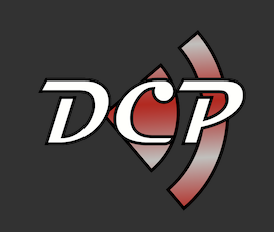get pissy about technology at times. I remember the days of working on an old Ford pickup with an in-line six that had enough room to fit me and my friends inside the engine cab with room to spare. Nowadays you barely have room to put your finger between the engine and the firewall with so much stuff that's been added on. Now before I start getting hate mail from Greenpeace let me say that I get it.I know that we need EGR systems for the environment. I understand harmful effects of Exhaust pollution. Heck I was alive during the 70s, I remember it. Which brings me to the subject at hand,The latest generation of pollution fighters in the diesel world. The DPF, or Diesel Particulate Filter.
Here's Wikipedia's take on them...
Wall-flow diesel particulate filters usually remove 85% or more of the soot, and under certain conditions can attain soot removal efficiencies approaching 100%. Some filters are single-use, intended for disposal and replacement once full of accumulated ash. Others are designed to burn off the accumulated particulate either passively through the use of a catalyst or by active means such as a fuel burner which heats the filter to soot combustion temperatures. This is accomplished by engine programming to run (when the filter is full) in a manner that elevates exhaust temperature, in conjunction with an extra fuel injector in the exhaust stream that injects fuel to react with a catalyst element to burn off accumulated soot in the DPF filter,[3] or through other methods. This is known as "filter regeneration". DPF and NOx emissions strategies greatly increased fuel consumption in 2007 model year diesel engines, the addition of DEF fluid has reduced fuel consumption, but fuel consumption is still higher than in pre-emissions engines
Did you read that last part? That's the part they don't tell you at the dealership. I've griped in the past about the cost of diesel fuel. The fact that it takes less refinement than gasoline but they charge more for it. But a-lot of customers were not informed that their vehicle would use far more fuel during the regeneration process. I have heard estimates of mileage dropping into the 4 to 6 MPG during the "filter regeneration". The first filter regeneration generally does not happen till about 20K but usually happens more frequent as the vehicle get older. One customer told me that after 50K he was doing a filter regeneration every 2000 miles. Causing him to sell his vehicle and go back to a gas burner. As a diesel parts salesman it pains me to lose a customer like that, because they will probably never return.
So whats the answer?
Well this is where we get down to brass tacks. How do we accomplish our environmental goals without putting too much on the consumer who has to fill the tank every week. The first step would be to get the refineries to make a better quality diesel fuel. The second thing is already happening. Several of the engine manufacturers have gone to a program called "add blue". It is the catalyst for the burn rather than the diesel fuel. While this is still an expense to the customer when you look at the cost per gallon it's far less than the diesel fuel. And finally, rather than trying to have a one-size-fits-all solution, We should have mandatory exhaust checking across the country. Rather than have a capture and burn program We should eliminate this soot at the source. And yes in the interest of full disclosure that would be good for me. I have had customers asking me about simply removing the device. The EPA voice their opinion on the matter with $20,000 fine's per incident. So if you want to buy the device to remove a DPF you will have to do it in the dark back alleys of the Internet, because it's not for sale at Diesel Care.


